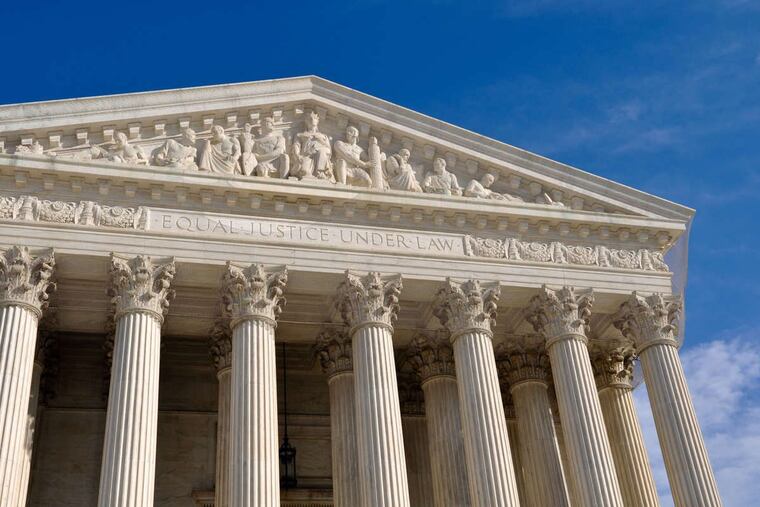Plaintiffs appeal Pa. gerrymandering case to SCOTUS after losing at trial
A week after losing at trial, plaintiffs in a Pennsylvania gerrymandering case have appealed to the Supreme Court.

After federal judges rejected their contention that Pennsylvania's congressional map was the product of unconstitutional partisan gerrymandering, plaintiffs in a federal lawsuit have filed a direct appeal to the U.S. Supreme Court.
In a 2-1 decision last week, a panel of federal judges sided with Republican lawmakers who drew Pennsylvania's map in 2011. D. Brooks Smith, the chief judge of the U.S. Court of Appeals for the Third Circuit, said that reform "must come from the political process itself, not the courts."
"We are excited at the prospect that the Supreme Court could hear our appeal during the present 2017-18 term as the justices look again at the role of the courts in protecting our democracy." Alice Ballard, the lawyer for the Agre v. Wolf plaintiffs who filed the appeal, said in a statement,
The appeal was filed Thursday, but it was not clear when the high court might act.
If the Supreme Court justices want to hear oral argument, "the appeal wouldn't be fully briefed in time for it to be heard this term," Michael Li, a redistricting expert at the Brennan Center for Justice at New York University wrote on Twitter.
Li wrote that he saw three ways forward for the appeal:
The plaintiffs, led by a Democratic ward leader from Philadelphia, had argued that the Elections Clause of the U.S. Constitution does not allow states to incorporate partisanship into the redistricting process.
Judge Patty Shwartz of the Third Circuit, siding with Smith, wrote: "Although there may be a case in which a political gerrymandering claim may successfully be brought under the Elections Clause, this is not such a case."
The third judge, Senior District Judge Michael Baylson, broke with the other two, calling gerrymandering a "major public policy issue" in his dissent.
The day before the Agre decision, a panel of judges in North Carolina struck down that state's congressional map, the first time a federal court has found a map to be an unconstitutional partisan gerrymander. Plaintiffs there had also used the Elections Clause to make their case, which the Agre lawyers have pointed to as a sign of hope.
"With one judge ruling in our favor, and three judges ruling in favor of the North Carolina challengers, it is up to the U.S. Supreme Court to decide what the Elections Clause means," Ballard said in her statement. "We think it means that Congressional districts must be drawn using traditional, non-partisan criteria. The public agrees. We call on the Supreme court to decide that the public is right."